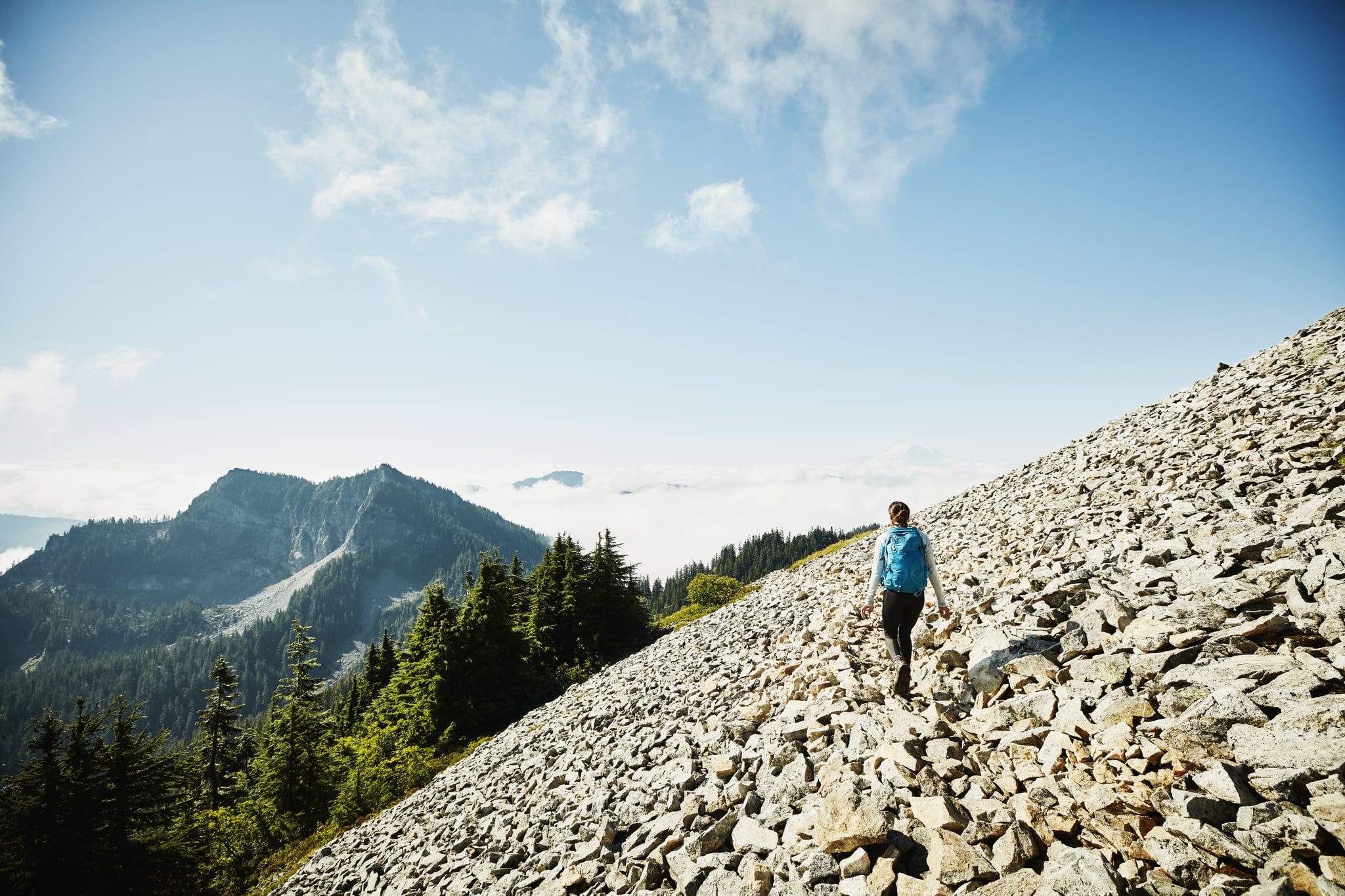Does Hiking Count as Cardio?
Hit the Trails, Burn Calories — Hiking Definitely Counts as Cardio, This Expert Says

Coast, mountains, forest, desert — there are amazing hiking trails to be found in any kind of ecosystem (here are our must-do hikes for every state). When the weather gets warmer, there's nothing we want to do more than explore the wilderness just beyond our backyards. As you're lacing up your hiking shoes and rubbing in your sunscreen, it's fair to start thinking about how hiking can fit into your fitness routine. Hitting the trails is a great way to unwind and appreciate the natural world, and it feels like a full-body workout when you're done, too. So what's the official take — can hiking count as your cardio workout for the day?
Does Hiking Count as Cardio?
In short: yes. "Hiking can be a great way to rev up your heart rate and get your muscles moving," said Stephanie Blozy, MS, an exercise science expert and owner of running shoe store Fleet Feet in West Hartford, CT. And it's especially effective if you're hiking on a rugged surface, as opposed to a maintained dirt or asphalt path. "It takes extra energy to step up and walk over roots and rocks," Stephanie told POPSUGAR. Many hikes also include elevation changes — hills and mountains — that add to the cardio benefits. (One of our editors hiked to Mount Everest base camp and back — now that's cardio with elevation change.)
Compared to other forms of cardio, Stephanie acknowledged that hiking probably won't spike your heart rate the way running does. But if you do choose one of those rougher, hilly trails, it can certainly be a more effective cardio workout than regular walking. In fact, Stephanie said, "hiking combines the best parts of walking and running:" it's gentler on your joints than running is, but utilises more body movements than walking, "like stepping over a rock or swinging your arms harder to create momentum and drive your body up an incline."
Plus, hiking is just more interesting. That potentially makes it more enjoyable than walking and running on a treadmill or road, which in turn makes it easier for you to go farther — you won't get tired or bored as quickly. "A hike in the woods is an adventure that keeps all of your senses engaged: sight, sound, smell and touch," Stephanie said.
How Can You Make Hiking a Better Workout?
To get the most cardio benefit out of your hike, Stephanie recommended grabbing a pair of trekking poles. They'll help you bump up your speed and incorporate more body movement, which in turn burns more calories. You should also head for more challenging routes, especially ones that include hills, though if you're just starting out, it's fine to start on easier trails and work your way up. The elevation changes are tough, but Stephanie said, "I always love hiking up mountains because the view at the top is usually worth the extra effort!"
Of course, you probably don't need us to tell you that hiking comes with a bunch of other benefits beyond just cardio. "A hike through nature rewards so many of your senses and doesn't always feel like work or exercise," Stephanie told POPSUGAR. "It's more of an adventure with perks like views, a sense of accomplishment, calories burned, and muscles strengthened." You'll improve your balance and spatial awareness as you take on uneven surfaces. And hiking through nature comes with a sense of peace that a run or walk through the neighbourhood doesn't always bring. "Time seems to slow down in the woods, so a hike can lead to you feeling much more refreshed and relaxed," Stephanie said. "Not to mention the fresh air and vitamin D from the sun will do your body good!"
Not warm enough for hiking just yet? Start amping up your cardio endurance with this 20-minute treadmill walking workout that's guaranteed to work up a sweat.






